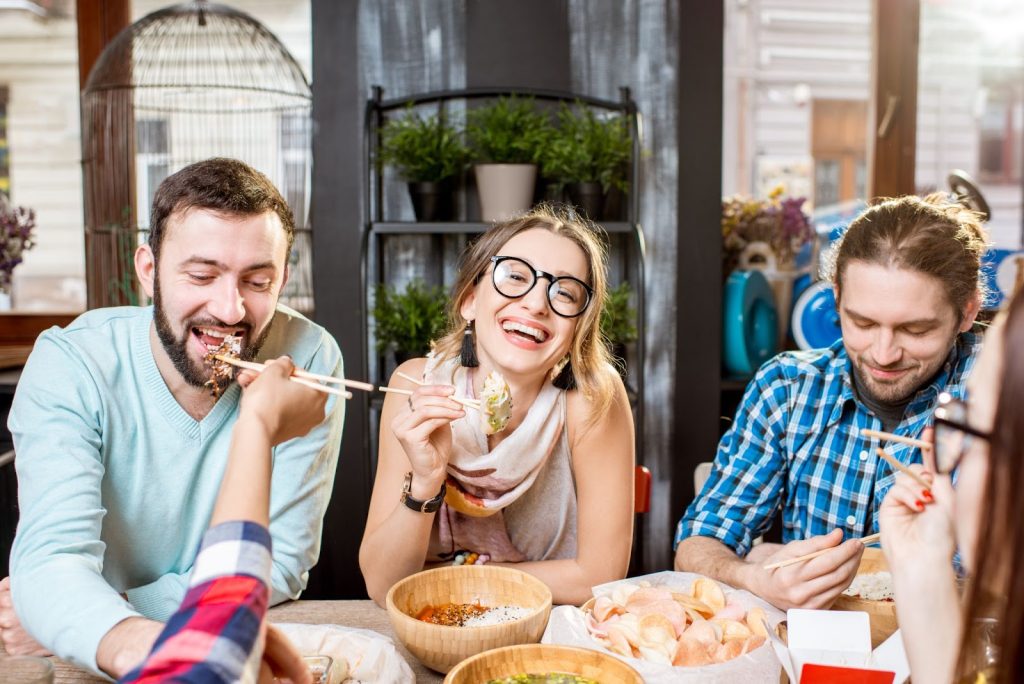Food is more than just fuel for our bodies—it’s a connection to our families, cultures, and memories. Whether it’s a warm bowl of soup on a cold day or the smell of freshly baked bread filling the kitchen, food has the power to comfort, bring people together, and create lasting moments. Just like platforms such as Playamo bring joy and entertainment to people around the world, food offers its own form of happiness and bonding.
In this article, we’ll explore how food connects us to our heritage, how it evolves over time, and why sharing a meal with others is such a powerful experience.
Food and Culture: A Story in Every Bite
Every culture has its own unique flavors, ingredients, and cooking styles. From the spicy curries of India to the savory pasta dishes of Italy, food reflects the history, environment, and values of a community.
When we eat traditional dishes, we’re not just enjoying a meal—we’re experiencing a piece of someone’s story. For example, Armenian lavash bread isn’t just a flatbread; it’s a part of family gatherings, baked with love and passed down through generations. Similarly, dumplings in China symbolize unity and wealth and are commonly enjoyed during Lunar New Year celebrations.
Exploring different cuisines is like traveling the world without leaving your home. It opens your mind, celebrates diversity, and helps you understand others better.
Family Recipes: The Heart of the Home
Some of the most treasured meals we eat come from family recipes. These are the dishes that remind us of our childhood, grandparents, and holiday gatherings. The smell of a mother’s stew or a grandmother’s pie has a way of making us feel safe and loved.
Family recipes often carry deep emotional meaning. They might be scribbled in an old notebook, passed down through stories, or shared during cooking lessons in the kitchen. Keeping these recipes alive means keeping family traditions alive, and passing them on brings generations closer together.
Even when people move far from home, cooking these dishes helps them feel connected to their roots.
The Power of Sharing Meals
There’s something special about sitting down to eat with others. Whether it’s a big holiday feast or a simple lunch with a friend, shared meals create moments of connection and warmth.
Eating together gives people a chance to talk, laugh, and bond. Studies show that families who eat together regularly tend to have stronger relationships and healthier eating habits. In many cultures, meals are the centerpiece of social life—a way to welcome guests, celebrate milestones, and show hospitality.
During tough times, sharing food can even be a form of support and love. A neighbor dropping off a casserole, or a friend inviting you for dinner, can mean more than words.
Cooking as a Creative Outlet
Cooking isn’t just about following a recipe—it’s a creative activity that allows people to express themselves. Choosing flavors, decorating plates, and inventing new dishes are all ways people show their personalities and emotions.
Many people find joy and relaxation in the kitchen. Chopping vegetables, stirring sauces, and baking bread can be calming and rewarding. It’s no surprise that during times of stress, like the global pandemic, so many people turned to baking sourdough or experimenting with new recipes.
Food blogs, cooking shows, and social media have also turned home cooks into creative stars. Platforms like Instagram and TikTok are full of beautiful dishes, cooking hacks, and heartwarming food stories that inspire others to try something new.
Street Food and Local Favorites
Some of the best food experiences come not from fancy restaurants, but from humble street stalls and small local shops. Street food is fast, affordable, and packed with flavor. It’s often where the true spirit of a culture’s cuisine shines through.
Think of tacos in Mexico, crepes in France, or shawarma in the Middle East—these aren’t just snacks, they’re beloved national treasures. Street food brings people from all walks of life together and makes good food accessible to everyone.
Trying local food when traveling is a great way to connect with a new place. It shows respect for the culture and often leads to fun and memorable conversations with locals.
Food and Celebration
Almost every special occasion is marked with a special meal. Birthdays, weddings, religious holidays—food plays a central role in celebrations around the world. Think of a Thanksgiving turkey, a wedding cake, or a Diwali sweet platter.
Celebratory food often involves extra effort, care, and beauty. These meals are about more than taste—they’re about making people feel honored, appreciated, and joyful. Preparing and sharing these dishes is an act of love.
Health, Balance, and Enjoyment
While food can be fun and comforting, it’s also important to maintain a healthy relationship with it. Eating a balanced diet with a mix of fruits, vegetables, proteins, and grains helps keep our bodies strong and our minds sharp.
But that doesn’t mean we can’t enjoy treats and indulgent dishes! The key is balance. Food should be nourishing, but it should also bring joy. Learning to listen to your body and enjoy food without guilt is an important part of self-care.

